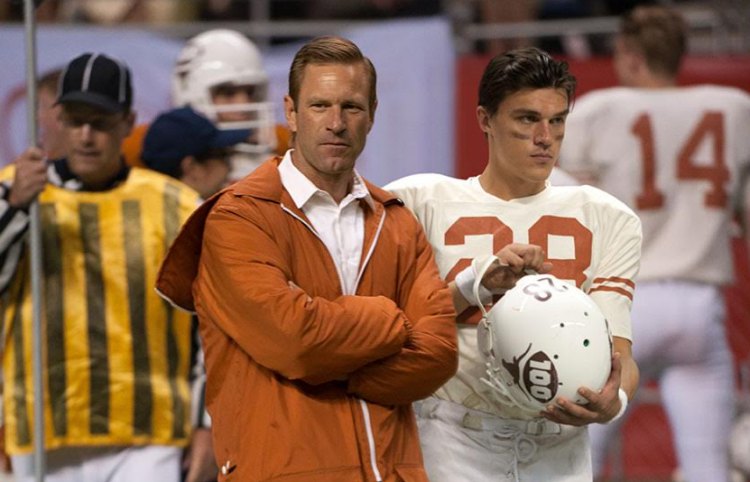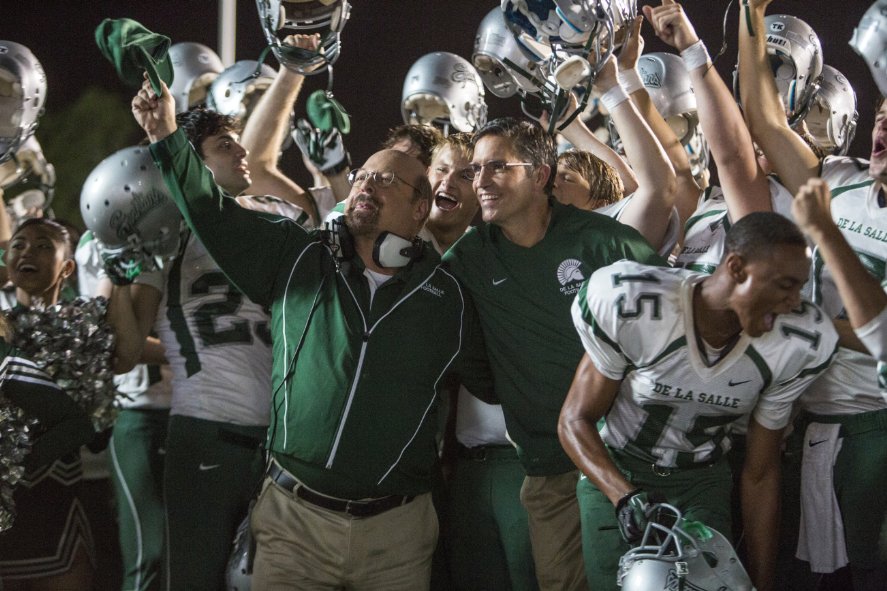Under the Stadium Lights
by George Wolf
Which is more likely to embrace the cliches inherent in sports: interviews or movies?
The sheer number of daily opportunities pushes the scale toward the Q&A, but while we’re waiting on the next superstar baller to “take it one game at a time,” Under the Stadium Lights scores one for the big screen.
Based on the book “Brother’s Keeper” (also the movie’s original title) by Al Pickett and Chad Mitchel, the film takes us inside the 2009 high school football season with the Abilene Eagles. The bitter taste of their playoff defeat the year before fueled the players and coaches as they made another run for the Texas state playoffs.
Mitchel (played by Milo Gibson, 6th son of Mel) was not only an Abilene police officer that year, he was also the Eagles team Chaplin. Through his “safe space” program, the players were encouraged to share the tough times they were going through off the field, and to lean on their football brothers for the strength to persevere.
That’s a commendable story. But director Todd Randall and screenwriters John Collins and Hamid Torabpour tell it with no regard for human shades of grey, which is a problem.
No doubt these mostly black and brown players did have troubling patches in their young lives, but the film paints the young men as one dimensional vessels strengthened by the good word of this white man. These are high school seniors, and there’s nary a word or thought about girls, sex or anything other than remaining vigilant in their virtue.
Don’t expect even a whisper about any systemic causes for the problems at home, either. While no one would argue the value in making good life choices, this is a bootstrap fantasy, where what isn’t talked about amounts to tacit approval of blaming the needy for just not working hard enough.
Often hamstrung by preachy and obvious dialog, the the cast does very little to elevate it. Save for the welcome presence of veterans Laurence Fishburne, Noel Gugliemi and Glen Morshower in small roles, performances alternate between hyperbolic over-emoting and emotionless cardboard.
Early on, though, the football scenes are a surprise bright spot. It’s actually charming that Randall forgoes cheesy reenactments for the real game films, but when he reverses that decision in the third act, the resulting clash gives the new footage an even more sterile and pretend quality.
A big congrats to the 2009 Abilene Eagles on what must have been a great season. But with Texas high school football on its mind, “lights” in its new title and no roster spot for nuance, the movie version will have you longing for Friday Night.



